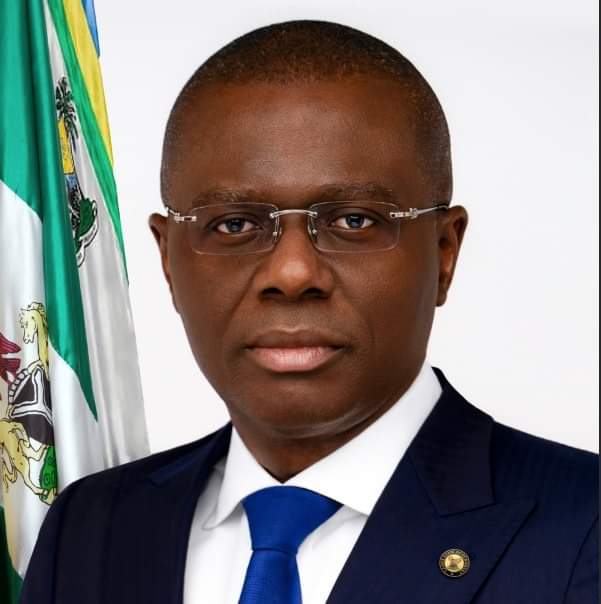
Mr Hakeem Popoola Fahm, Commissioner for Science and Technology, on Tuesday said the plan to fully transform Lagos State into a smart city is on.
Fahm said the plan by the Babajide Sanwo-Olu administration to fully transform Lagos State into a smart city and make the State’s economy 21st century compliant is underway.
The Commissioner said the ongoing laying of 3,000 km fibre metro network cables and broadband infrastructure across the State was part of the comprehensive Smart City programme of the State Government aimed at driving Lagos into a 24-hour economy.
Fahm spoke of the development in the ongoing inter-ministerial press briefing organised by the State Government to commemorate the Governor’s second year anniversary.
He said the broadband infrastructure rollout was to enable rapidity in commercial activities and provide instant access to healthcare, government services and social connectivity, noting that the optics fibre would help the Government to also improve security through inter-connected technological tools.
The high-speed Internet connectivity that will come from metro-network cables, Fahm explained, would be used at homes, schools, healthcare facilities and Government’s offices for improved service delivery, stressing that the infrastructure would also boost e-commerce activities and empower innovation start-ups.
He said: “The unified metro fibre project, which the administration of Governor Babajide Sanwo-Olu kick-started, is a multi-year Smart City programme in which we are installing 6,000-kilometre fibre optic cables across the State in two phases. In the first phase, which started last year, 3,000km of fibre optics cables are being rolled out within the metropolis.
“The plan is to drop high-speed Internet connectivity into all communities within the State and extend it our public schools, institutions of learning, health centres, and all government offices and parastatals. We will also be using the digital infrastructure to enhance security and safety, as we will be installing security cameras in public places. This will also be deployed in our operations to achieve efficient traffic management.”
As part of the efforts to achieve the Smart City agenda of the Sanwo-Olu administration, Fahm said the Lagos State Residents Registration Agency (LASSRA) had started to implement the rollout of multipurpose functional smart Identity cards developed for easy identity validation, payment of utility bills and collection of internally generated revenue, using unique e-wallet services.
LASSRA, he said, has also improved technical excellence with the introduction of 4.4.2 fingerprint capturing process and development of an effective online platform to aid enrolment process.
“Our real-time online registration has been developed and is currently utilised to reduce the time and effort spent in registration for residency cards,” the Commissioner said.
Fahm said the Ministry of Science and Technology had upgraded campus network infrastructure to encourage e-learning and virtual conference, pointing out that the upgrade was implemented with Wi-Fi 6 devices – the latest network.
He said the Lagos State Science Research and Innovation Council (LASRIC), established in 2019, had funded over 50 research, innovation and STEM Projects in the last one year, disclosing that the State was in collaboration with the University of Lagos for development of ambuvent ventilators with high commercial value for the management of infectious pandemic.
The Commissioner said the N250 million seed capital earmarked by the Governor to boost technological innovation and initiatives was yielding good results with the development of local digital solution platforms by tech start-ups. The development, he said, had enhanced access for MSMEs to stress-free digital payment platforms, thereby improving the digitisation of the Lagos economy.
He said: “The innovation seed capital was awarded to young applicants, who required the funds to bring their innovation into reality. The first set of beneficiaries selected to benefit from the seed fund were in the fields of innovation, research and STEM; we empowered the innovators and tech start-ups with N100 million grants, which is part of the N250 million set aside for Science and Technology related ideas and initiatives.”
Fahm observed that the State Government was funding other key intervention projects from the N250 million seed capital, including patent-pending research initiatives, agricultural value chain technology, healthcare, construction and manufacturing, among others.
He noted that ‘Start-up Lagos’ – the largest tech ecosystem in the State – had offered retail and institutional investors opportunities to tap into the vast tech-driven initiatives and push their ideas Africa’s diverse tech market.
“Our Open Source initiative is a technical programme that will allow for greater local development of smart city application. This is to promote the institutionalisation of technical skills across the software development community in Lagos,” the Commissioner said.
The Special Adviser to the Governor on Innovation and Technology, Mr. Tunbosun Alake, who spoke on the State Government’s support for science students’ innovation and ideas, said Lagos sponsored secondary students to participate in 774 Young Nigerian Scientist Presidential Award (774-YONSPA).
“This is to boost the interest of students in Science, Technology, Engineering and Mathematics (STEM) education and to encourage young people to be inventors of projects and programmes that can resolve challenges in the State, such as infrastructure, environment, waste management and wealth creation,” Alake said.
He said the Art of Technology (AOT) initiated by the current administration was an ecosystem that served as a bridge between the private sector technology system and the public sector. The second edition of the event, he said, focused on deploying smart data to engender smatter Lagos.
Alake said the Ministry was currently supporting digital projects and programmes in the public sector, including ICT Training for content audio-visual creation, restructuring of Government’s digital assets to align with global technology and Smart City goals, implementation of State-wide ICT competencies, and planning of Lagos Science, Technology and Innovation expo.














